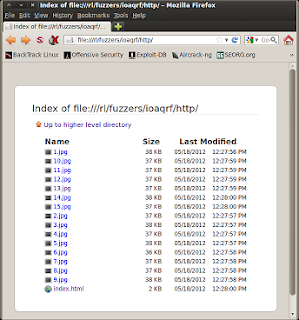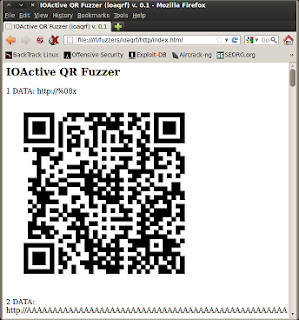QR codes [1] have become quite popular due to their fast readability and large storage capacity to send information. It is very easy to find QR codes anywhere these days with encoded information such as a URL, phone number, vCard information, etc. There exist tons of apps on smartphones that are able to read / scan QR codes.
|
Platform
|
Popular QR Apps / Libraries
|
|
Android
|
· Google Goggles
· ZXing
· QRDroid
|
|
iOS
|
· Zxing
· Zbar
|
|
BlackBerry
|
· App World
|
|
Windows Phone
|
· Bing Search App
· ZXlib
|
QR codes are very interesting for attackers as they can store large quantity of information, from under 1000 up to 7000 characters, perfect for a malicious payload, and QR codes can be encrypted and used for security purposes. There are malicious QR codes that abuse permissive apps permissions to compromise system and user data. This attack is known as “attagging”. Also QR codes can be used as an attack vector for DoS, SQL Injection, Cross-Site Scripting (XSS) and information stealing attacks among others.



